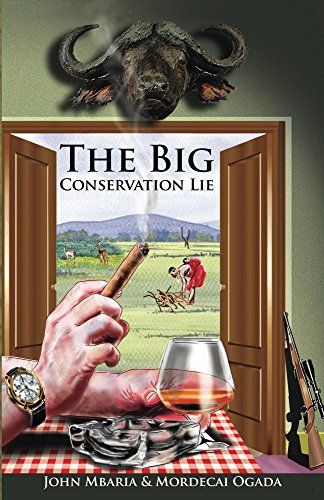“The Big Conservation Lie” is a book written by John Mbaria and Mordecai Ogada, published in 2016. It provides a critical examination of conservation practices in Kenya and, more broadly, in Africa. The authors argue that mainstream conservation efforts, often led by Western organizations and individuals, have frequently marginalized local communities and failed to achieve meaningful conservation outcomes.
Key points from the book include:
Colonial Legacy in Conservation: The book highlights how modern conservation practices in Africa often reflect colonial attitudes, with an emphasis on protecting wildlife and landscapes for the benefit of outsiders, rather than the local populations who have lived in harmony with these environments for generations.
Marginalization of Indigenous Communities: Mbaria and Ogada argue that indigenous communities are often excluded from conservation efforts, despite their deep knowledge and traditional practices that contribute to the sustainable management of natural resources. The authors suggest that conservation has sometimes been used as a tool to dispossess these communities of their lands.
Critique of Western-Led Conservation: The authors are critical of the role that Western NGOs, philanthropists, and governments have played in shaping conservation policies in Africa. They suggest that these entities often prioritize their own agendas over the needs and rights of local populations.
The Role of Tourism: The book discusses the impact of tourism on conservation, arguing that while tourism is often presented as a way to fund conservation, it can also lead to environmental degradation and the commodification of nature.
Call for a New Conservation Paradigm: Mbaria and Ogada advocate for a shift in how conservation is approached, emphasizing the need to involve local communities in decision-making processes and to recognize their rights and knowledge as central to sustainable conservation efforts.
“The Big Conservation Lie” has been praised for its bold and provocative critique of the conservation establishment, as well as for bringing attention to the often overlooked voices of African communities in conservation debates.
